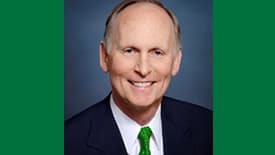Salary adjustments coming for many

On November 5, Chancellor Philip Dubois sent a letter by email to all faculty and staff in which he reiterated a message from his August Convocation address: that the University will once again address compensation for employees in the 2015-16 academic year to try to bring them up to the equitable market rate for their respective positions.
The University has made “strategic salary adjustments” for one employee group or another almost every year during Dubois’ tenure as chancellor. This University-initiated salary adjustment will be the eighth during Dubois’ 10 years as chancellor.
The North Carolina General Assembly awarded a $750 one-time bonus for permanent employees as of November 1, 2015; the bonus is to be paid in December.
In his recent letter, Dubois said, “Although we certainly could have wished for salary raises on a continuing basis and are looking forward to the legislative session in 2016 to seek the General Assembly’s help in addressing our salary issues, we do not intend to stand idle until then.”
Dubois this week has provided additional details about plans to provide compensation adjustments for staff and faculty. Last year, a study was done, and salary adjustments were made for EHRA (formerly known as EPA) non-faculty employees. This year, the University will devote $3 million to adjust SHRA (formerly SPA) employee salaries. This will bring 75 percent of UNC Charlotte SHRA staff to the mid-point or higher of the market range for their positions. The remaining 25 percent of SHRA employees will have their compensation adjusted to within 10 percent of the market mid-point.
With respect to faculty, $4.4 million was required to bring them to the average salaries of faculty in UNC Charlotte’s peer group designated by the UNC Board of Governors; $5.1 million was required to move them to the average of doctoral granting institutions. UNC Charlotte has allocated $6 million, according to Dubois.
“As of today, of our 1,058 permanent faculty, 905 (86 percent) are having raises processed,” Dubois said. “Those raises can be as much as 9.9 percent over their current salaries. We have an additional 66 cases where the raises will equal or exceed 10 percent, but we don’t yet have authority to approve those at the campus level.” Dubois added that new guidelines under consideration by the Board of Governors at their December meeting may give campuses that authority. If not, Dubois said he will advance those cases for Board of Governors approval at the earliest possible opportunity.
Dubois indicated that the 14 percent of faculty not receiving a raise this year might be for any of four reasons: if the faculty member was newly hired as of August 2015; if their salary is already above the market for their professorial rank and academic discipline; if s/he had recently received a raise as a result of a retention offer or promotion; or if the faculty member is on a performance improvement program.
Dubois said that, because of statutory restrictions, staff raises will be effective Jan. 1, while faculty raises are effective retroactively to July 1.